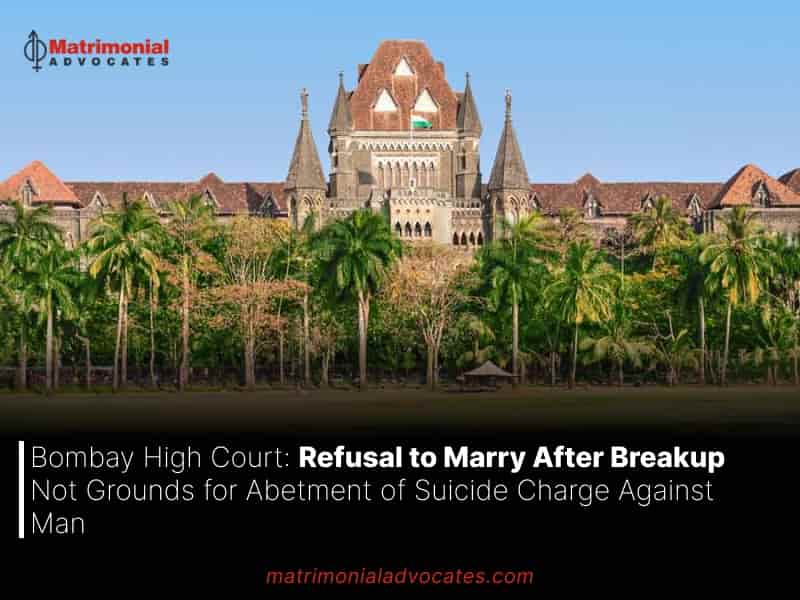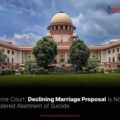
The Nagpur bench of the Bombay High Court ruled on Wednesday that a man cannot be held liable for abetment of suicide merely because a woman ended her life after their long-term relationship ended. Justice Urmila Joshi-Phalke granted relief to a man accused of abetting the suicide of a woman he had been in a nine-year relationship with.
“It is only a case of broken relationship which by itself would not amount to abetment to commit suicide,” Justice Joshi-Phalke observed, while noting that the ‘exhaustive suicide note written by the deceased woman and also the WhatsApp Chats between them, revealed that it was a ‘love relationship’ which was developed between them out of love and thus, the physical relations between them were ‘consensual.’
“The investigation papers, nowhere reveal that the applicant, at any time, provoked the deceased victim in any manner to kill herself. On the contrary, the evidence shows that after breaking of the relationship, the deceased victim was constantly in contact with the applicant and was communicating with him. Therefore, in such a situation, merely because the applicant refused to marry her, that by itself would not amount to instigate or provoke the deceased victim to commit suicide. At the most, what is attributable to the applicant is that he has broken the relationship,” the judge said.
The bench further noted that neither the suicide note nor the WhatsApp chats indicate that the man had physical relations with the woman under a promise of marriage or that their relationship ended after an extended duration.
“Moreover, the suicide by the deceased victim is not immediate result of the said broken relationship. The applicant denied to have love relationship with her in July 2020 itself and, thereafter, the deceased victim committed suicide on December 3, 2020. Thus, there was no proximity or nexus between two acts i.e. breaking of the relationship and the suicide,” the judge pointed out.
The bench discharged a 26-year-old man who had challenged the Khamgaon Sessions Court’s decision in Buldhana district, which had denied his plea for release from the case.
The Sessions Court had relied on arguments from the deceased woman’s father, who alleged that the man caused his daughter mental distress by maintaining a long-term relationship, ending it abruptly, and subsequently dating another woman. The court also referred to the suicide note left by the deceased, which detailed their lengthy relationship, its end, and the resulting emotional turmoil.
In response, the man argued that their relationship was consensual and initially founded on mutual affection. He claimed that after their breakup in July 2020, the woman continued to stay in contact with him and insisted that he never engaged in physical relations with her under a promise of marriage. He maintained that his refusal to marry her could not constitute a valid ground for charging him with abetment to suicide.
The High Court found merit in the man’s arguments and overturned the Sessions Court’s order.





